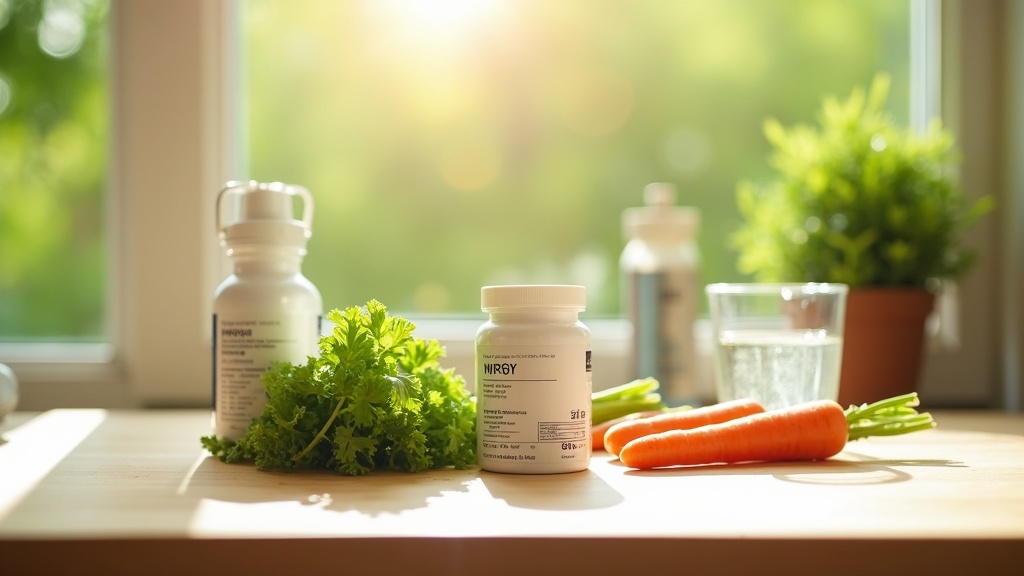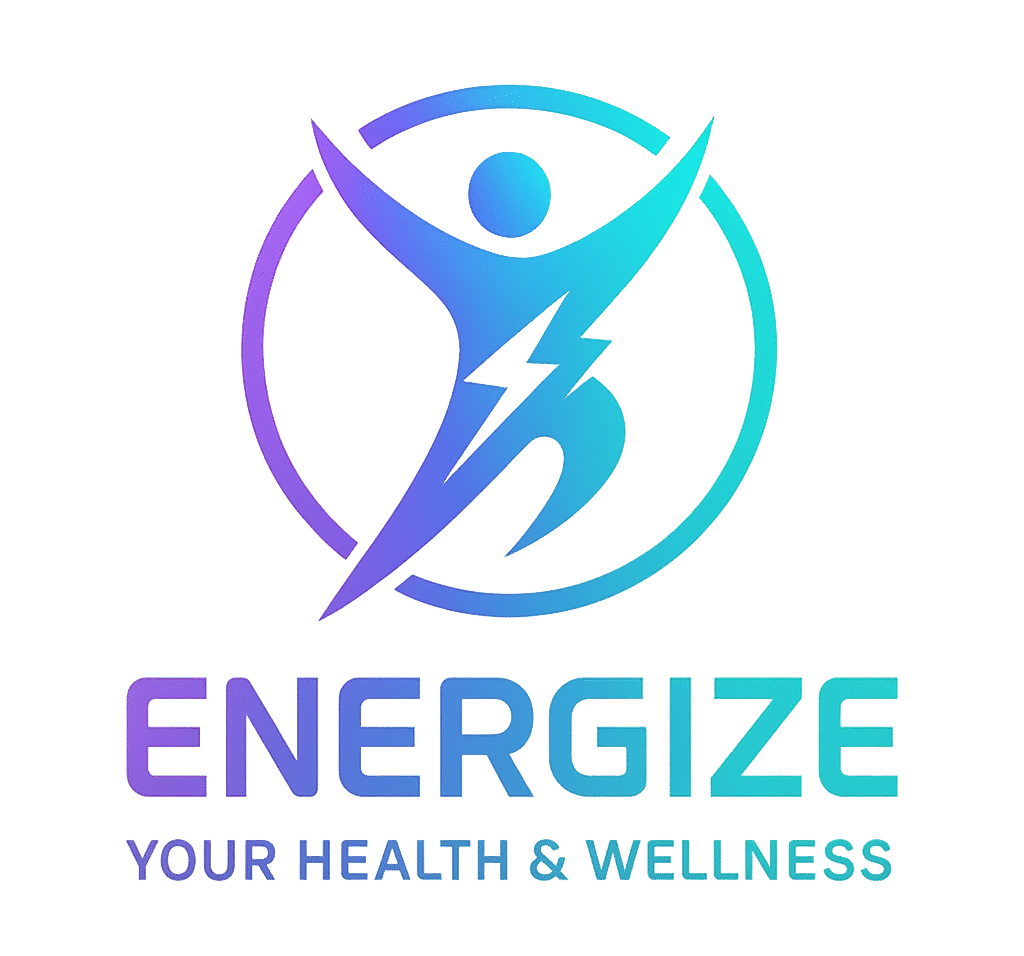Taking care of your eyes gets more important as you get older. Changes in vision often sneak up slowly, and many people don’t think much about eye health until reading glasses or blurry menus show up. Nutrition plays a pretty big role in supporting eye function, and that’s where supplements for eye health can be super handy, especially for older adults. I’m checking out what you need to know to help keep your eyes in good shape through the years.

Why Eye Health Becomes More Important with Age
As you age, the chance of experiencing eye issues goes up. Conditions such as age related macular degeneration (AMD), cataracts, glaucoma, and dry eyes are a lot more common past your 50s. If you’re like me and have family members with eye conditions, you know how valuable early prevention can be.
The eyes are made up of complex tissues that break down over time, sometimes thanks to sun exposure, oxidative stress, and natural wear and tear. Even though regular checkups with an eye doctor are always a smart move, supporting your diet with key nutrients may help keep your vision clearer for longer.
Plus, day to day activities like reading, driving at night, or enjoying hobbies rely on good vision. Protecting eye health is about preserving your independence and quality of life well into the future.
Understanding Eye Health Supplements and What They Do
Not all supplements are created equal, and strolling down the vitamin aisle can get overwhelming fast. Eye health supplements usually combine a few important vitamins, minerals, and antioxidants that support vision. Some of the main nutrients you’ll often see:
- Lutein and Zeaxanthin: These are antioxidants found in leafy greens and brightly colored veggies. They help filter blue light and protect the retina.
- Vitamin C: Known for giving a boost to the immune system, Vitamin C also supports the health of blood vessels in your eyes.
- Vitamin E: This one helps neutralize oxidative stress in the eye tissues.
- Zinc: Important for transporting Vitamin A from the liver to the retina, which helps produce melanin (the pigment that protects your eyes).
- Omega3 Fatty Acids (like DHA and EPA): Found in fish oils and flaxseed, these can help reduce dry eye symptoms and support the retina’s function.
- Vitamin A: A key player in maintaining healthy vision, especially in low light conditions.
Supplements that bundle these nutrients together are often labeled “eye formulas.” One famous research study that comes up a lot is the AREDS2 (Age Related Eye Disease Study 2), which found that certain combinations of these vitamins and minerals may help slow the progression of AMD. If you have this condition or just want to stay on top of things, checking for these ingredients can make a difference.
Getting Started with Eye Health Supplements
If you’re thinking about taking an eye health supplement, it’s a good idea to talk with your doctor or eye specialist first. Some people have medical conditions or take other medications that might not play nicely with certain supplements.
A few things that really help when figuring out how to get going:
- Check Ingredients: Look for lutein, zeaxanthin, Vitamins C and E, zinc, and Omega3s on the label.
- Dosage: Follow the directions on the bottle (or as your doctor suggests). More isn’t always better since some vitamins can build up in your system and cause side effects.
- Diet Comes First: Try to eat a diet rich in colorful fruits and veggies before leaning hard on supplements. Supplements fill in the gaps, but food comes first.
- Brands Matter: Pick brands that have been tested for quality and purity. You can look for third party certifications on the label, which is pretty reassuring.
Common Eye Issues for Older Adults That Supplements Can Support
There are several eye conditions that older adults face more frequently, and while supplements can’t cure them, they might help slow things down or support overall comfort.
- Age Related Macular Degeneration (AMD): This condition affects central vision. Nutrients like lutein, zeaxanthin, and zinc are the heavy hitters here.
- Cataracts: Cloudy lenses can make vision blurry or faded. Antioxidants like Vitamin C and E may help tone down oxidative damage to the lens.
- Dry Eyes: This is when your body doesn’t make enough tears (or good quality ones). Omega3s have been studied for their ability to ease dry eye symptoms.
- Glaucoma: A group of conditions that damage the optic nerve. While supplements won’t treat glaucoma, antioxidants can support general eye health, and managing blood pressure or diabetes can help too.
Regular visits to your eye doctor are important for screenings and early detection. Supplements add another layer of support but can’t replace medical treatment when it’s needed.
Quick Tips for Choosing the Right Eye Health Supplement
Here are some easy things to keep in mind when shopping for an eye health supplement:
- Read Ingredient Labels: Check for research backed nutrients, preferably at the levels used in studies like AREDS2 (e.g., 10 mg lutein, 2 mg zeaxanthin).
- Skip Mega Doses: Avoid crazy high dosage formulas unless recommended by a healthcare professional.
- Look for Soft gels for Fat soluble Vitamins: These help with the absorption of nutrients like Vitamin E and lutein.
- Pill Size Matters: If you have trouble swallowing big pills, there are smaller capsule or powder options out there.
- Mind the Price: Expensive doesn’t always mean better, so look for third party testing instead of paying extra for fancy branding.
Mixing up your supplement routine with food based sources gives you more variety and can help cover nutritional bases that pills alone can’t.
Things You Should Probably Think About Before Starting Eye Health Supplements
Supplements are, in general, pretty safe for most people, but there are a few things that can make a difference:
- Interactions with Medications: Some supplements (like high dose Vitamin E) can interact with blood thinners or other drugs. Talking with your doctor clears up any guesswork.
- Underlying Conditions: People with kidney or liver concerns need to keep an eye on certain nutrients.
- Side Effects: Taking more than you need can lead to side effects like nausea or, in rare cases, toxicity (especially for fat soluble vitamins like Vitamin A or E).
- Overlapping Nutrients: If you already take a multivitamin, crosscheck it with any eye health supplement so you’re not doubling up unnecessarily.
Ingredient Absorption
Some nutrients absorb better with food, especially those that need a little fat to work properly (like lutein, zeaxanthin, and Vitamin E). Taking your supplement with a meal can improve how well your body uses those nutrients.
Individual Nutritional Needs
Everybody’s body is a little different, and what works for your neighbor might not be the right fit for you. Your doctor or nutritionist can help figure out if you’re already getting enough of certain nutrients or if focusing on supplements makes sense.
Trusted Sources
I always recommend looking for third party verification from labs like USP, NSF, or Consumer Lab. This helps make sure what’s on the label is actually in the bottle and free from weird fillers or contaminants.
Eye health matters more as the years go by, but you don’t have to do it alone. Pairing a good diet with targeted supplements can help you put your best foot forward with clear, comfortable vision.
Advanced Tips for Protecting Your Eyes As You Age
Getting plenty of the right nutrients is just one part of the big picture when it comes to protecting your eyes. There are a few practical habits that make a difference too:
Wear Sunglasses: High quality sunglasses that block UVA and UVB rays help protect your retina and lens from sun damage. Got to love a good pair of shades.
Keep Hydrated: Drinking plenty of water helps maintain tear production, which is great for folks who get dry eyes often.
Limit Screen Time: Digital screens can increase eye strain. Taking breaks (like the 202020 rule: every 20 minutes, look at something 20 feet away for 20 seconds) is a good move.
Get Regular Eye Exams: An eye exam isn’t just for updating glasses, your doctor can spot changes early and recommend the best prevention steps for you.
Eat Colorful Meals: Make sure you are eating meals loaded with orange, red, green, and yellow produce. Carrots, bell peppers, spinach, and corn are all great picks for eye health. These foods offer a huge range of antioxidants and nutrients that can help protect against some of the most common age related vision problems.
Stay Active: Regular exercise helps blood flow and can reduce the risk of diseases (like diabetes and high blood pressure) that raise the risk of vision concerns. A brisk walk or swimming a couple of times a week can make a difference.
Control Lighting at Home: Make sure your reading areas and rooms are well lit. Good lighting eases eye strain when doing crafts or catching up on a good book.
Supplement Basics for Older Adults: What to Focus On
Choosing the right supplement usually comes down to a balance of evidence, affordability, and personal comfort. The big players to focus on for eye support are:
- Lutein and Zeaxanthin: Choose supplements with at least 10 mg lutein and 2 mg zeaxanthin for protection against blue light and AMD.
- Omega3 Fatty Acids: Go for at least 500 mg of combined DHA and EPA for dry eye support and retinal function.
- Vitamins C & E: Together, these antioxidants provide a shield against everyday oxidative stress.
- Zinc: Often included at 2580 mg depending on the formula, which helps with the transport and use of Vitamin A in the eye.
Getting these in with a combination of food and supplements means you’re rounding out your support for clear and comfortable vision as you age.
Frequently Asked Questions About Eye Health Supplements
Question: Can supplements really improve my vision?
Answer: Supplements can help slow changes caused by aging and support overall eye comfort, but they won’t restore lost vision or cure serious conditions on their own. They work best with a healthy diet and routine eye care.
Question: Are eye supplements safe to take with other medications?
Answer: For most people, yes, but it’s always best to check with your doctor to avoid any possible interactions, especially if you take blood thinners, medication for high blood pressure, or other supplements.
Question: When should I start thinking about eye health supplements?
Answer: Eye health gets more important after age 50, but starting early with a healthy diet (and maybe a supplement if your diet needs a little boost) can pay off over the long run.
Final Thoughts
Adding an eye health supplement to your wellness routine is a practical way to help look after your vision as you get older. Picking formulas that match your needs, focusing on quality, and prioritizing a colorful diet can keep your eyes more comfortable and your outlook brighter, even decades down the line.
Click here: PLANT-BASED VISION SUPPORT FOR HEALTHIER EYES
